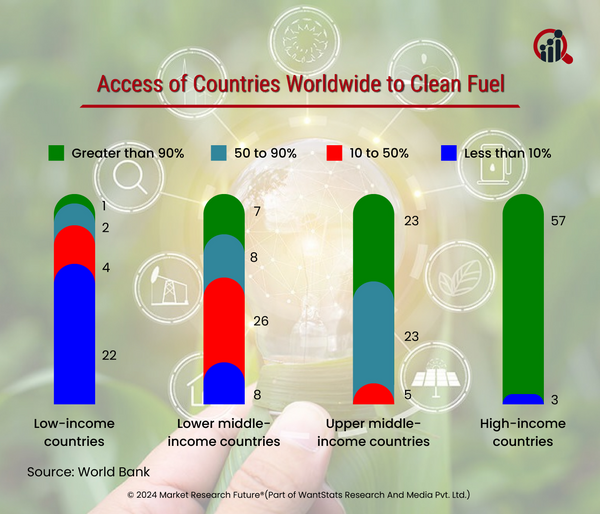Clean Fuels Requires More Development for Domestication
Clean fuels are the new elements in green energy transformation. It is gaining momentum with the potential of limiting harmful greenhouse gas emissions. However, surveys in 2024 state that adopting clean fuels for domestic usage is a long process.
The energy market is enhancing renewables' processes and production levels to produce clean energy. However, large-scale production of clean fuel is an important aspect of meeting the countries' domestic demand. For emerging Asian countries like India and China, it is challenging to meet the domestic demand for clean fuels. Moreover, clean fuels tend to be more costly than fossil fuels. The reason behind the cost factor of clean fuels emerges from the fuel production infrastructure. Clean fuels comprise biofuels, hydrogen-based fuels, and others. Clean fuels have great potential to reduce carbon emissions in the environment.
Along with that, clean fuels can reduce harmful greenhouse gas emissions in the transportation sector. Clean fuels can reduce air pollution in the environment, too. However, the source of clean fuels is important as it decides the amount of environmental production.
There are a lot of challenges to overcome to adopt clean fuels commercially. Some of the key challenges include infrastructure for production, the density of energy, consumer's adoption of clean fuels, the cost-effectiveness of clean fuels, and others. The major key points discussed above are responsible for deciding the future domestication of clean fuels. The main aspect of clean fuels is its production and storage, as well as the infrastructure for a large amount of production and storage. Due to the lower density of clean fuels, larger storage areas are required, or frequent refueling in the tankers is the only way. Consumers' adoption of clean fuel is important because it decides the future of clean fuels. In order to enhance the commercial adoption of clean fuels, the imposition of certain government initiatives will be a great help. Consequently, the research and deep insight into the market scenario show that adopting clean fuels needs more industrial and infrastructure development.






